The Transat: Near Miss of 24 Hour Record
Published on May 5th, 2016
(May 5, 2016; Day 4) – The 21 solo sailors still racing on the third day of The Transat bakerly from Plymouth to New York are now spread out on a north-south axis of over a thousand miles of the north Atlantic.
While the biggest yachts in the fleet – the Ultimes – continue on an extreme southerly course, that is taking the leaders well south of the Azores, the two monohull fleets – the Class40s and the IMOCA 60s together with the Multi50 trimarans – are much further north.
In their path is a deep Atlantic depression that is likely to hit the IMOCAs and the Multi50s head-on tomorrow morning. The Class40s may escape the worst of the headwinds but they too are expecting to hit the sort of conditions that have made The Transat bakerly such a formidable challenge over the years.
It was a speedy day for Thomas Coville, the hugely experienced skipper of the giant trimaran Sodebo, who came within less than 10 miles of setting a new solo 24-hour distance record.
The Frenchman had no concern for the record – which currently stands at 682 nautical miles – but in the 24 hours to 03.00 BST today, Coville travelled 673 miles, just nine miles short of the mark set by his fellow French skipper Armel le Cleac’h on board the trimaran Banque Populaire VII in 2014.
Sodebo and Francois Gabart on board Macif have been in sight of each other for most of the race but are now about 40 miles apart on a north-south axis, with Coville just ahead.
“It’s funny that this happened during a race and it’s nice to hear – it means that we have been pushing hard and it’s good,” Coville noted. “Francois is faster in medium wind and light wind because his boat is new and lighter, but in stronger wind and reaching I think Sodebo is a fantastic boat. It’s amazing to be crossing the Atlantic in a race like this and be so close to each other. Yesterday was one of my best days ever racing multihulls – for sure.”
Looking at the routing ahead, when the two skippers will have to climb to the west-northwest, as they close on New York for the finish, Coville said he will be off the wind for much of the time but warned that New York is where Atlantic depressions form and things could change. “It depends what kind of low is being formed when we arrive,” he said.
In the meantime Sodebo is in perfect shape. “I’ve been cleaning a few things – like my wet underwear – and today has been about recovery, so I have been eating and sleeping for a few hours which is fantastic,” said Coville.
Several hundred miles north of the Ultime battle, the three other fleets in The Transat bakerly – the IMOCA 60s, Class40s and Multi50s – are preparing for the onslaught of an Atlantic depression which is set to hit them tomorrow night and then dominate their first weekend at sea.
The now nine-strong Class40 race is still being led by Thibaut Vauchel-Camus on Solidaires en Peloton-Arsep, while the four remaining Multi50s are being led by Lalou Roucayrol on Arkema.
The remarkable feature of the IMOCA race has been the performance of Vincent Riou on PRB. The former Vendée Globe solo round-the-world race winner has managed to either lead or hold second place despite racing a conventional boat against two foilers.
At present Riou is around 10 miles astern of the class leader, the aforementioned Armel Le Cleac’h on the foiling Banque Populaire VIII, and six miles ahead of Jean-Pierre Dick on the foiling St Michel-Virbac. Riou’s performance offers a fascinating insight into how the foiling IMOCAs and non-foilers will compare in this year’s Vendée Globe solo round-the-world race.
Event website – Tracker – Facebook
About The Transat
Twenty-five boats set sail May 2 2016 on one of the great races in solo sailing, the 3,050-nautical mile passage across the north Atlantic from Plymouth to New York. Alongside 24 competing skippers is a one-off entry by the French racing legend Loick Peyron who is sailing Eric Tabarly’s 44ft wooden ketch Pen Duick II in the same trim as she was when Tabarly raced her to victory in The Transat (then called the OSTAR) in 1964.
The OSTAR (Observer Singlehanded Trans-Atlantic Race) was created in 1960 by a handful of pioneering sailors. The race was organised every four years by the Royal Western Yacht Club (RWYC) from 1960 through to the 2000 event, albeit with a lot of involvement from the French event organiser Pen Duick in the 90s, in order to cater for the demands of the professional campaigns that dominated the event.
After the 2000 edition, OC Sport stepped in to develop the event and acquired the rights to the professional part. OC Sport organised The Transat in 2004 and 2008, the 2012 edition was deferred at the request of IMOCA (the largest competing class).
The RWYC continues to organise a solo transatlantic race for Corinthian and non-professional sailors that is still known as the (O)STAR,. This race usually falls a year after the professional big boat race i.e. 2005, 2009, 2013, 2017. Both the amateur Yacht Club event and The Transat have the right to link to the history of the original race created in 1960, and to the rich history it has produced.
The first race was competed by just a handful of pioneering sailors including Francis Chichester and Blondie Hasler who coined the phrase: “One man, one boat, the ocean.” There has been tragedy, dramatic rescues and exceptional drama since the race began in 1960. Over time The Transat, as it is known today, has evolved and now serves the professional end of offshore sailing. But there are few modern day races that can reflect on such a long and outstanding history.
Monohull IMOCA 60 record: 12 days, 11 hours and 45 minutes set by Loick Peyron (FRA) on board Gitana in 2008. Multihull 60ft record: 8 days, 8 hours, 29 minutes set by Michel Desjoyeaux (FRA) on board Géant in 2004.
Source: The Transat


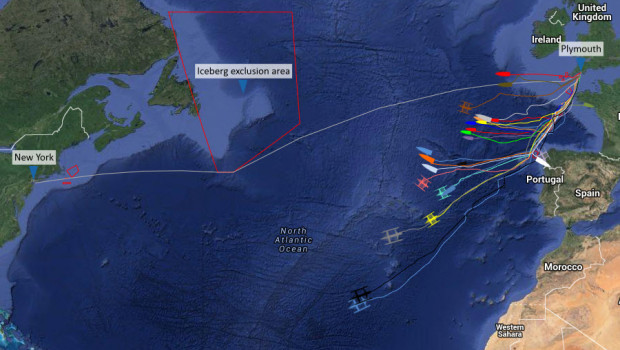

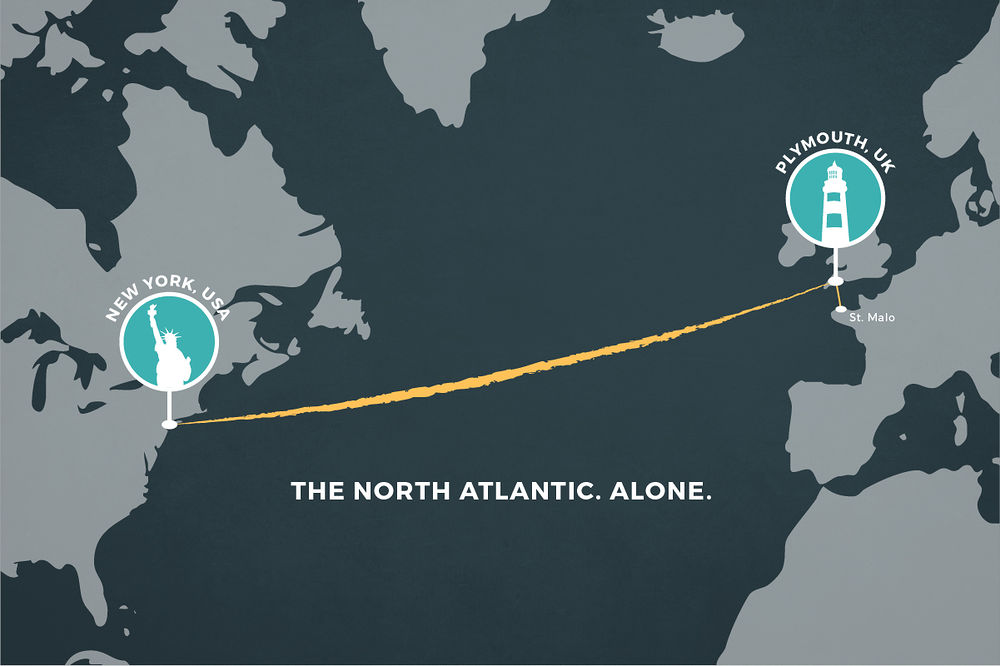

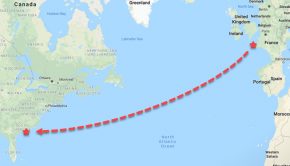
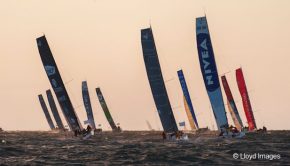
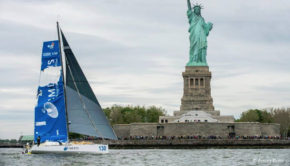
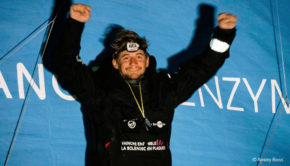
 We’ll keep your information safe.
We’ll keep your information safe.